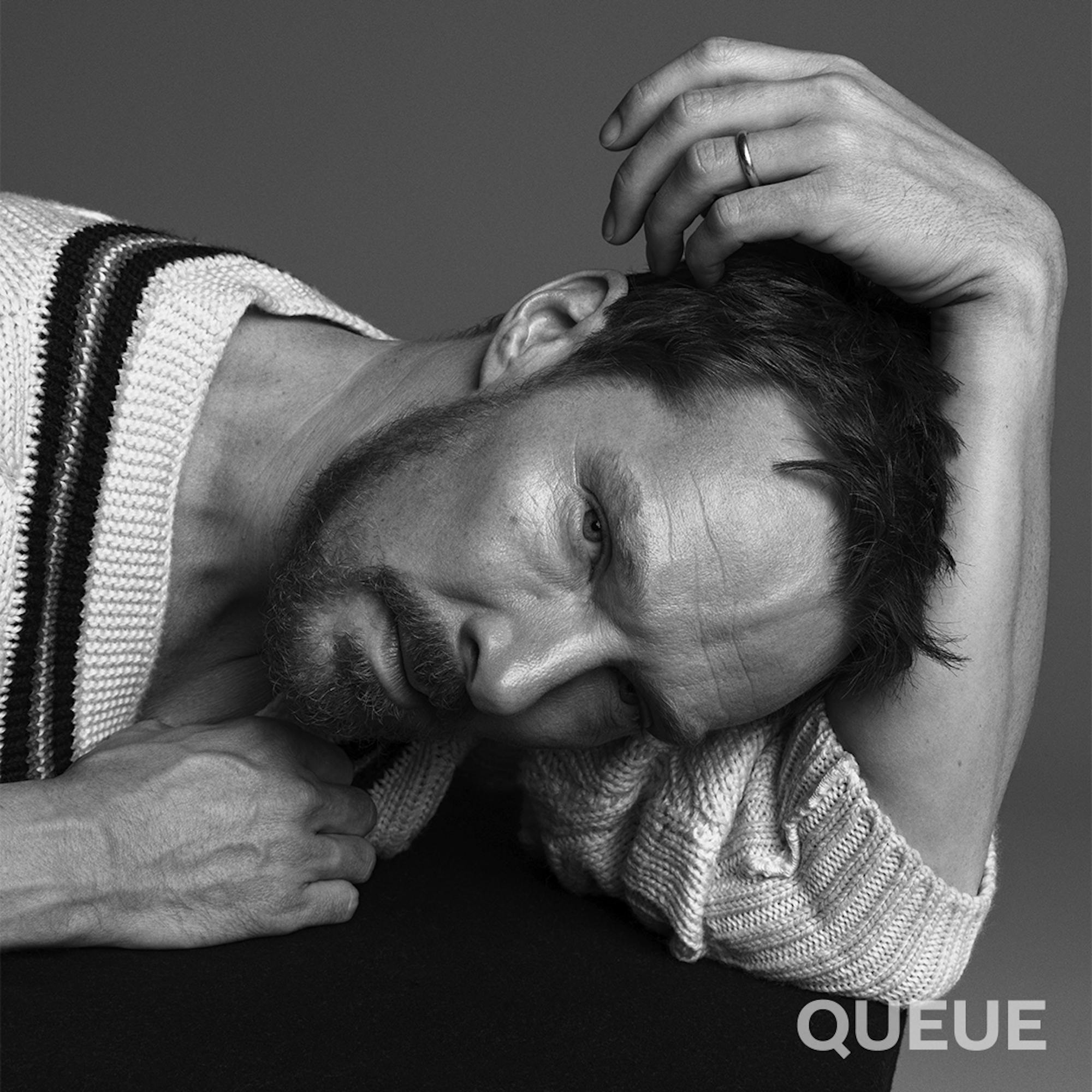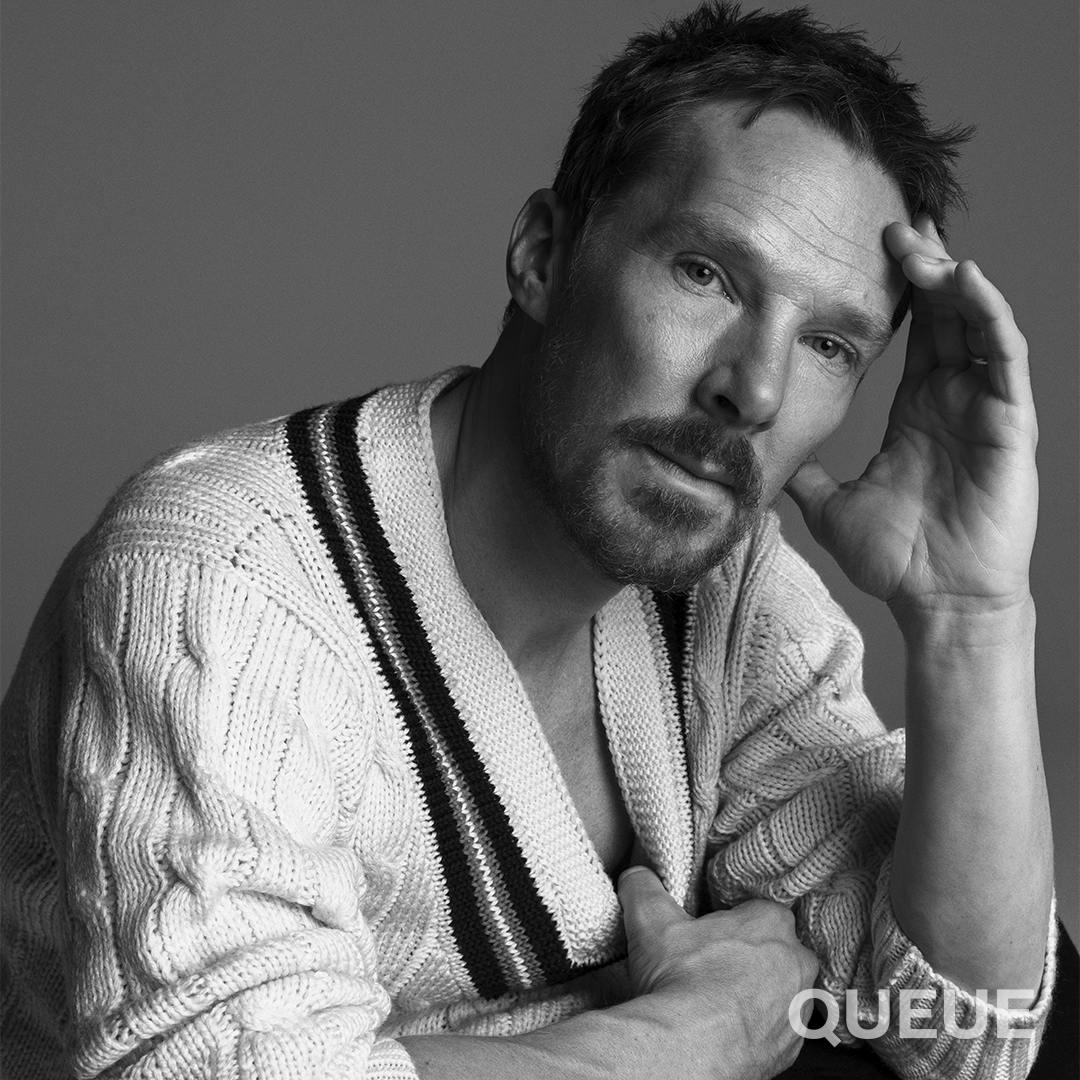The actor discusses his immersive turn as a complicated rancher in The Power of the Dog.
If any quality animates Phil Burbank, the menacing yet inexplicably charismatic rancher played by Benedict Cumberbatch in writer-director Jane Campion’s searing drama The Power of the Dog, it’s an all-consuming antipathy toward anyone he perceives as weak. It’s a mindset that couldn’t be further from Cumberbatch’s own, yet for the duration of the film’s New Zealand shoot, he remained in character as the cruel cattle rancher who rules over his family’s sprawling Montana property like some fearsome despot.
“Jane introduced me to the crew as Phil,” Cumberbatch explains. “She went, ‘This is Phil, everyone. At the end of the shoot, you’ll meet Benedict. He’s really nice.’ I’m very apologetic, and I often end up overexplaining myself. I’m a people pleaser, and Phil’s not that. He’s very strident. He gets a lot wrong, and that’s some of his undoing. But in order to have that framework of freedom, Jane allowed me to be literally naked and open to who this man is.”
Clearly the approach worked. It’s frankly astonishing the degree to which the affable British actor vanishes beneath Phil’s sunburned skin, something critics have remarked upon since The Power of the Dog premiered at the Venice Film Festival in September 2021. Cumberbatch’s performance in the 1920s-set film, adapted from Thomas Savage’s 1967 novel of the same name, has been widely hailed as a career-best, high praise considering the impressive and eclectic filmography Cumberbatch has amassed over two decades on stage and screen.
Although the Comic-Con crowd loves him for his spellbinding superhero Doctor Strange — not to mention his starring role in the Emmy Award-winning BBC series Sherlock — Cumberbatch is a London Academy of Music and Dramatic Art grad who has turned in acclaimed performances in such heavyweight dramas as Tinker Tailor Soldier Spy, War Horse, 12 Years a Slave, and 1917. He received a Best Actor Oscar nomination for 2014’s The Imitation Game, in which he portrayed pioneering mathematician Alan Turing, who famously broke the German Enigma code during World War II but later committed suicide after being prosecuted for homosexual acts at a time when homosexuality was criminalized in England.
When Campion approached Cumberbatch about The Power of the Dog, the gifted actor immediately sparked to the idea of both working with her and taking on such a formidable challenge in Phil, who embarks on a campaign of intimidation after his younger brother George (Jesse Plemons) brings home a new bride, widowed mother Rose (Kirsten Dunst). He amends his schemes after developing an unusual interest in Rose’s bright but peculiar adolescent son Peter (Kodi Smit-McPhee), though their curious and unexpected connection hints at something buried deep within Phil, a truth he can’t bring himself to admit. “I couldn’t think of a richer character to play with a more extraordinary director, simple as that,” Cumberbatch says.
The Academy Award nominated Cumberbatch recently spoke with Queue’s Krista Smith about the lengths to which he transformed himself into this complicated, fatally flawed character who rejects his privileged upbringing in favor of a hardscrabble life on the Montana plain. A tragic figure, Phil is a man who simply can’t reconcile who he is with what the world expects him to be.
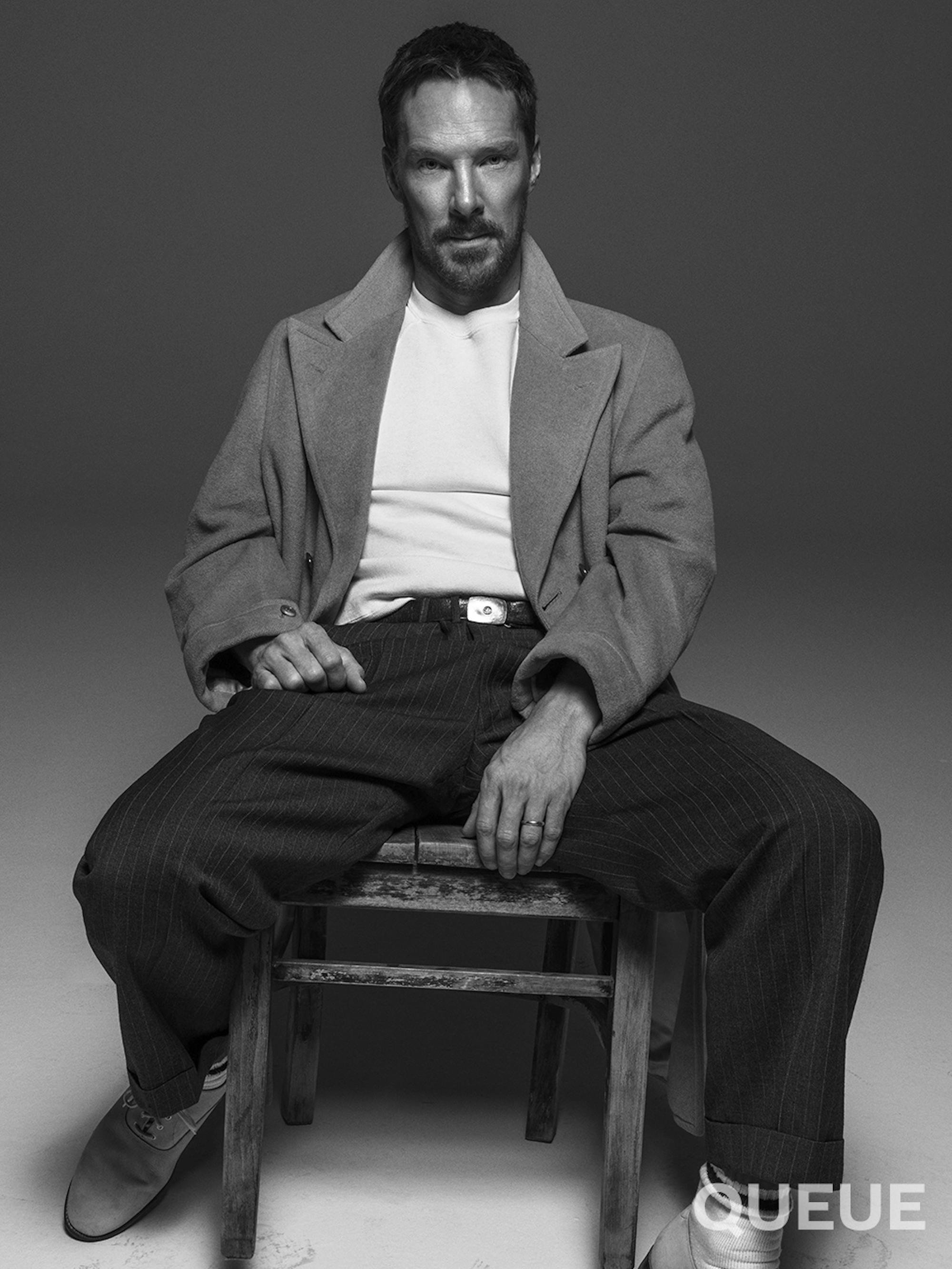
Krista Smith: Phil Burbank is a spectacular character, someone so intensely physical but also incredibly cerebral. What was it about him that most strongly appealed to you?
Benedict Cumberbatch: The layers of complexity to him. There’s just so much going on in any given moment: behavior which could be judged without context as gargantuanly nasty, or mean, or tortured, or torturing. He has this deep conflict in him — which is a mixture of fighting and being himself, and also fighting against inauthenticity and being authentic to the way of life that he’s been brought up in. Even that’s complicated. He’s well to do.
His parents hardly ever got on horses, let alone got dirty with the work of castration, and branding, and herding, and fencing, and everything else that goes into cattle ranching. He fell for it hook, line, and sinker. He found his purpose and still managed to be a scholarly student at a brownstone university. He was immensely proficient, in anything he turned his hand to — from the banjo playing and the whittling of a little chair. Then, at the core of him, there’s this inability to be his authentic self on a profound level. That’s a very rich menu of choices and drivers to play with as an actor. On top of that, you’ve got a filmmaker like Jane, who is so profoundly open to exploring sexuality, masculinity, gender, and physical sensuality. She really created a platform for me to immerse myself in the role.
The physicality of the horseback riding, the rope training — there’s no way to fake that.
BC: You have to do it. You have to know what you’re doing. I went to a ranch, and I practiced pretty much everything you see in the film: taking hide and treating it, cutting it, beveling it, strengthening it, lengthening it; and the horseback riding, the roping — learning how to do that. It didn’t stop. But there were a lot of things that I would never have gotten good enough to do on camera, to the level of Phil. He really was an expert in all of these things. It is just an impossible list to master. Even the single-hand rolling of a cigarette on horseback — that’s a hard thing.
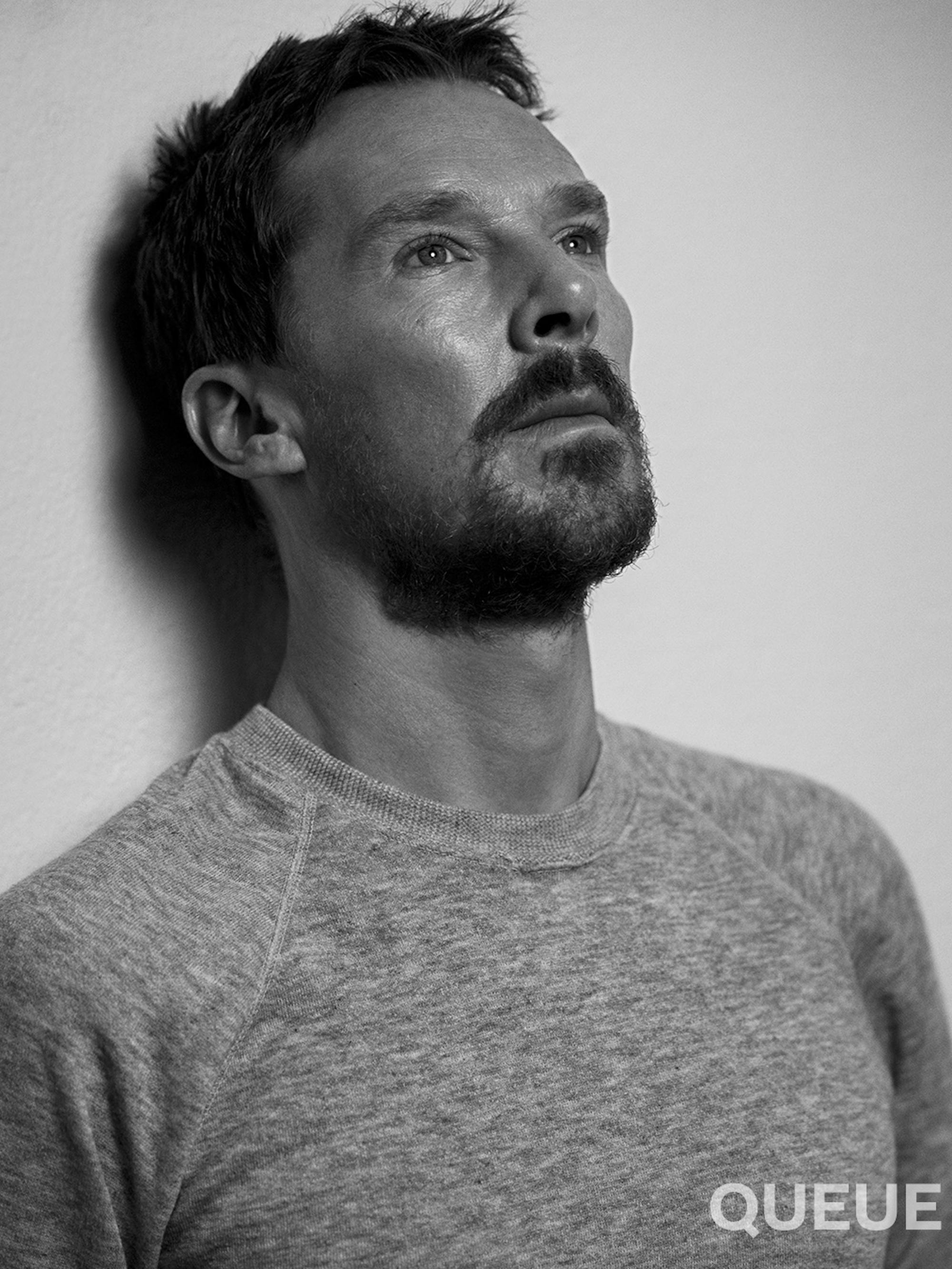
What do you remember about meeting Jane Campion for the first time?
BC: Fear. I mean, she’s this iconic woman of our culture and an extraordinary filmmaker whose work has been seminally important to me, as well as everyone else who’s seen it. I was with my family — it was, I think, while promoting Avengers: Endgame — and she came to our home, where we were staying at the time. She just breezes in with a rucksack, “Oh, hi. How are you? I’m Jane. I just wanted to meet you.” She’s so human and normal and easy to be around, yet at the same time, she’s got an alchemy, and you’re just waiting to know when that drops. It did in conversation — it was these sparkles of brilliance and these touches of insight into the story, or the view of the world that she had. Or how she wanted to realize that world with a look book, and talking about how she thought of Phil — she was always thinking about those hairy chaps and him being like a satyr figure — this half man, half animal — because he’s so much of nature and immersed in nature. There’s a lot of brain involved in Phil though, so I did go there. I read lots about Lewis and Clark, the famous explorers. I read about that time in Montana. I did all that stuff. But then it’s about play. It’s just about play.
As you said, Phil is excellent at everything he does. He’s got a superior intellect, yet he’s so dependent emotionally on his brother, who is grounded, not intellectual, not cultured, none of the things that Phil would respect.
BC: Yeah. Phil loves his brother very, very deeply and profoundly, but the need for him is dependency. That’s not a healthy love. In the book, he’s disappointed in George’s lack of interest in the world around him. It infuriates Phil because he wants his companionship because he loves him. George is just very quietly turning away from the dance they’ve been doing for 25 years. He’s looking to the future, whereas his brother is wanting to celebrate the past, the deep past for them, over half a lifetime ago. That’s another reason why — despite how abhorrent his behavior is on the surface — you still stay with him. You lean in to get to the answer of the question: Why is he like this? In art, when you have characters who are acting out, or suffering, it’s about the need to be heard and understood. Phil is desperate, and he can’t admit to that because it’s a massive show of weakness in a world where he can’t show vulnerability. From the get go, you realize this guy is trapped between this search for authenticity and coming up against a world that won’t tolerate his authentic self yet suffers so much else that is inauthentic. And it enrages him.
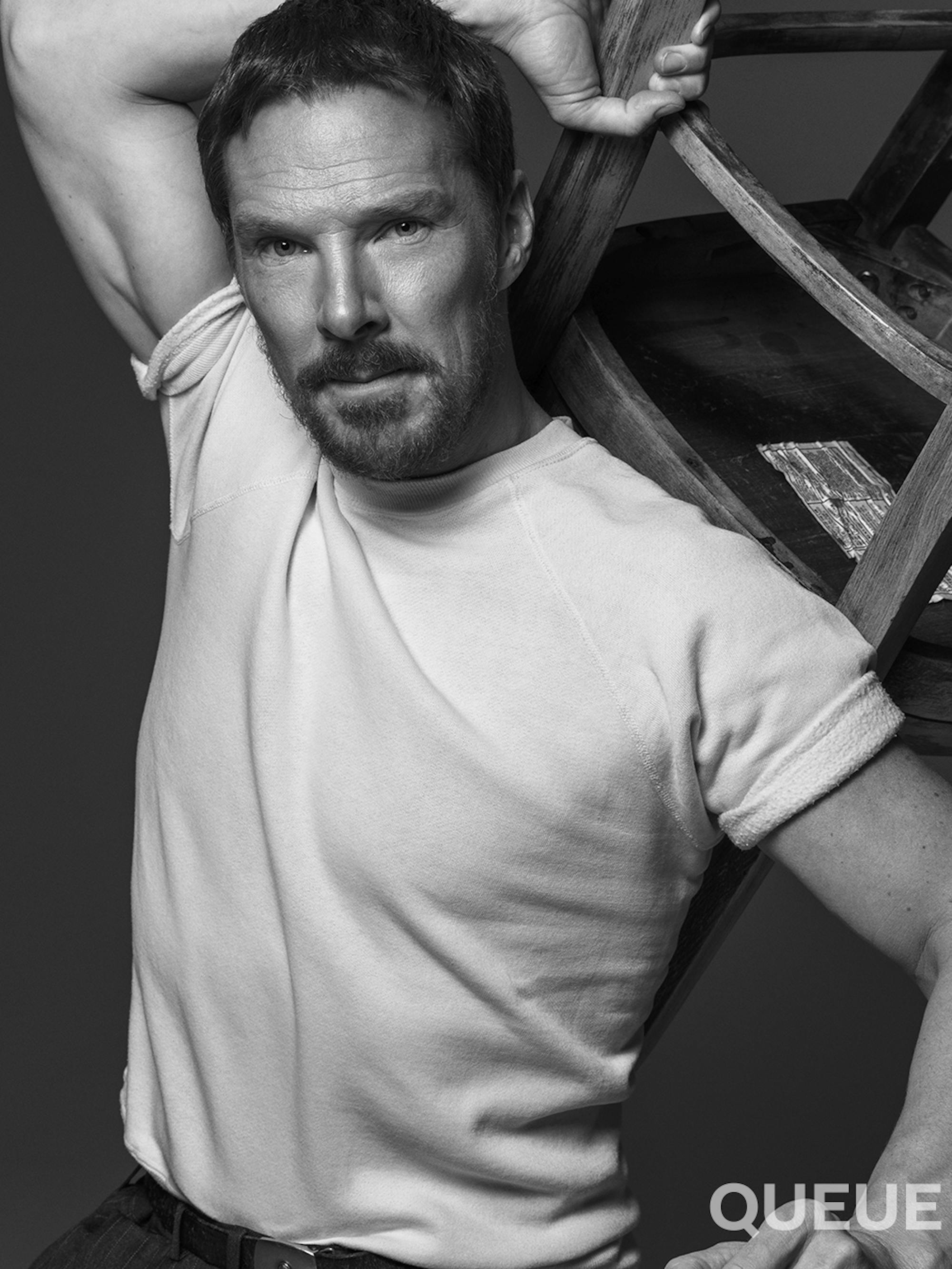
During rehearsal, Jane made you and Jesse dance together to establish their dynamic — Phil is the alpha male; George is the follower.
BC: That was a brilliant way of her cracking that dynamic open quickly. It’s a nice physical way into what the structure of their relationship was, but also just to feel Jesse’s body, to be close to a man that Phil has grown up with, who he sleeps side by side in the same bed with — we’d know each other’s smells and feel. While we both adore each other and really respect each other’s work as actors, it was amazing to have that brotherly proximity just like that. Jesse’s the real deal, through and through.
You have such an extraordinary career. I think about your fans, and there are people who love you for Sherlock, and then there are the Marvel fans. Then you have the pure cinephiles who love you as an actor.
BC: It’s wonderful. I mean, other actors are in a similar position, and we’re so lucky. I don’t feel like any of those arenas mean any less to me or any more to me. There’s lots of crossover, of course. You’re always looking for integrity, sincerity, and commitment, and really taking an audience on a journey with a character. But it’s different doing an emotional scene where there’s loads of green screen and a ping pong ball that you’re supposed to be acting opposite as opposed to a horse or a human being. I’m just so lucky that I get to play on different canvases, and it keeps me on my toes.
What did you learn from this shoot, being part of Jane Campion’s orbit?
BC: To get out of my own way, to be allowed to be a character and not have to apologize for it, to not need to be liked. She allowed me to be more open, I think, than I’ve ever been in a performance. At the same time, the character needed that, so it was a perfect combination. I feel fearless at the moment. I really do. I feel really emboldened. Not just by this experience and what we’ve all been through in this film, but just where I’m at in life, I guess. I feel more capable of dealing with the fact that it’s all right if people don’t agree with you, it’s all right to say no, and it’s all right to be yourself. These are all lessons that were profoundly impactful in the portrayal of Phil, the tragedy of him, the whole experience. As an actor, I’ve been brought into realms I hadn’t discovered yet or been tested by, and I feel pretty fearless.
